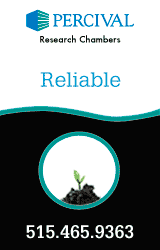Scientists Test Algae to Harvest Precious Metals & Biofuel from Mining Sludge
Overseas, British scientists and authorities are conducting cutting-edge research aimed to clean up a flooded tin mine in Cornwall county by using algae to harvest precious heavy metals in toxic water and produce biofuel at the same time. The project, led by the GW4 Alliance, has brought together the universities of Bath, Bristol, Cardiff and Exeter, in collaboration with Plymouth Marine Laboratory (PML), the Coal Authority and waste management group Veolia. And while it is still in its very early stage, the parts involved hope it delivers an effective new way to deal with toxic waste.
The team, which is taking untreated mine water from the Wheal Jane tin mine, has already began growing algae in those samples to explore whether the organism is effective in removing harmful materials, such as arsenic and cadmium.
The plan is to convert the lab-grown algae into a solid from which heavy metals can be extracted and recycled for use in the electronics industry. The remaining solid waste will then be used to make biofuels.
“It’s a win-win solution to a significant environmental problem,” said in a statement Dr. Chris Chuck from the University of Bath’s Centre for Sustainable Chemical Technologies. “We’re putting contaminated water in and taking out valuable metals, clean water and producing fuel.”
The team hopes to begin a pilot project at the mine in the New Year. The aim will then be to scale it up.
If successful, the scientists believe the technology could be used to treat many forms of environmental pollution.
MINING
www.mining.com










